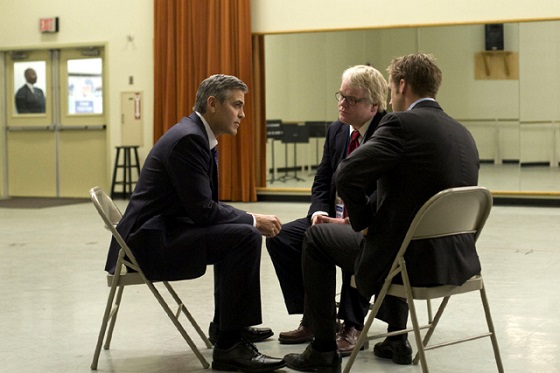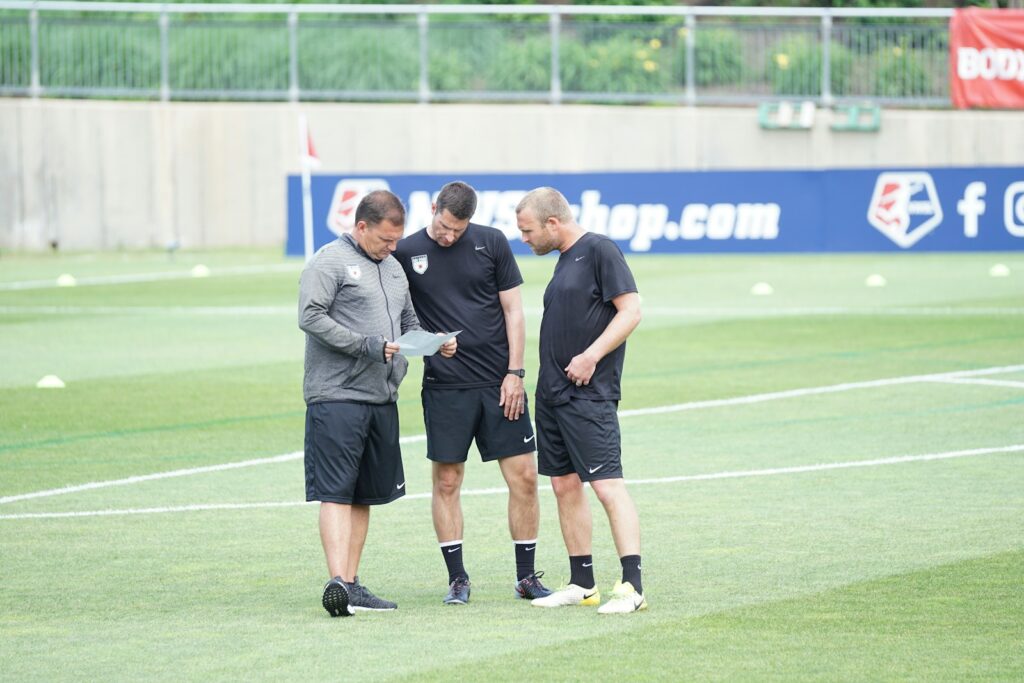
“We are what we repeatedly do. Excellence is not an act, but a habit.” Aristotle had it correct, especially when it comes to the field of business coaching. In the demanding world of professional coaching, where guiding clients to unlock their full potential is paramount, success isn’t just about innate talent or a single brilliant strategy. It’s about the consistent, often subtle, behaviors that elite coaches integrate into their daily lives and practices. These are the foundational habits that not only elevate their own capabilities but also profoundly impact the growth and achievements of their clients, setting a clear demarcation between the amateur and the professional.
Having witnessed countless coaching journeys unfold, it becomes abundantly clear that certain habits universally distinguish the truly effective coaches from those merely going through the motions. These aren’t complex theories or fleeting trends; they are deeply ingrained ways of operating that foster trust, inspire action, and drive tangible results. For anyone looking to deepen their impact, enhance client relationships, and truly separate themselves in the coaching arena, understanding and cultivating these core habits is an absolute game-changer. It’s about moving beyond simply “doing” coaching to truly “being” a professional coach, embodying the principles of sustained excellence.
This article will embark on an insightful exploration of the indispensable habits that form the bedrock of every highly effective coach. We will delve into how these practices are not just beneficial but absolutely essential for transforming your approach from a casual endeavor to a professional mastery. By understanding and integrating these habits, you’ll gain practical, actionable solutions to elevate your coaching practice, empowering both yourself and your clients to achieve unprecedented levels of success.
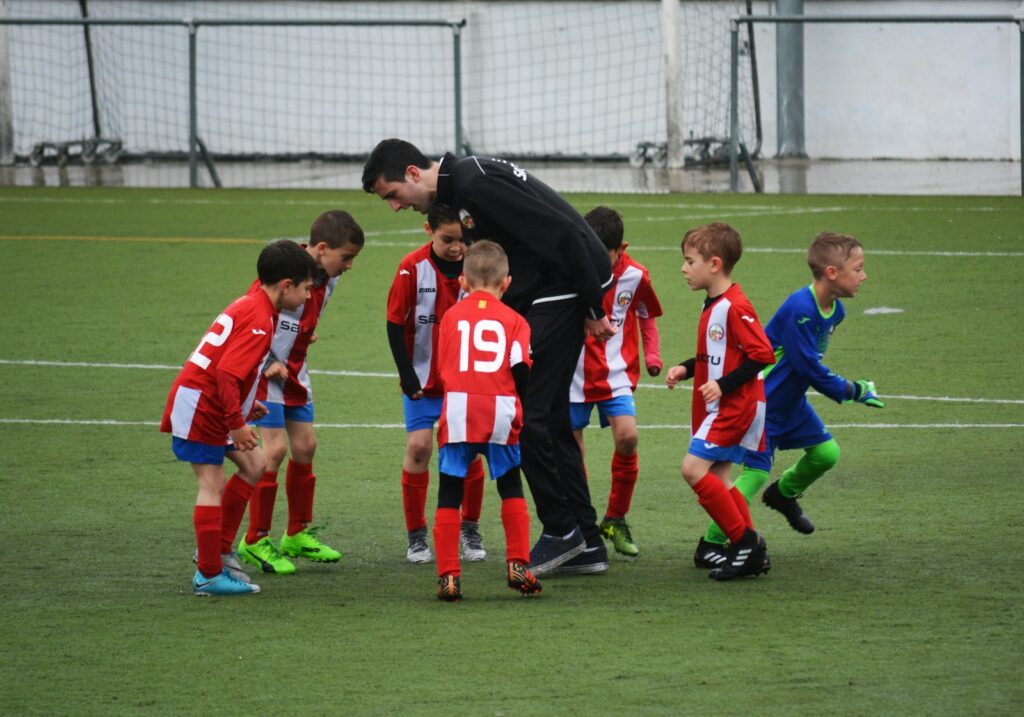
1. **Interested in Growth**The journey of a professional coach is, in essence, a perpetual quest for self-improvement and expanding horizons. Top coaches are deeply “interested in growth,” recognizing that their capacity to guide others is directly linked to their commitment to personal development. This isn’t a passive interest; it’s an active, ongoing dedication to continuing education, a non-negotiable aspect of their professional identity. They proactively “spend a lot of time on personal development.”
This commitment manifests in tangible ways, such as “reading books, taking classes, and joining professional associations.” These activities ensure their knowledge remains current, their perspectives fresh, and their methodologies cutting-edge. It’s an investment in their craft, guaranteeing they bring the most relevant and powerful tools to every client interaction, preventing their methods from becoming outdated and ensuring they always offer the best.
Moreover, this continuous learning isn’t just for personal gain; it sets a powerful example. When clients see their coach actively pursuing growth, it subtly yet powerfully inspires them to do the same, fostering a spirit of continuous improvement. This creates a dynamic learning environment within the coaching relationship, making it a space where both parties are evolving and adapting, embodying the principles of lifelong development.
Read more about: Decoding True Value: 12 Luxury Traps That Can Become Costly Over Time for Discerning Consumers

2. **Uses a Coach**Perhaps one of the most compelling habits that underscores the conviction of top coaches is their willingness to “employ the services of a coach themselves.” This isn’t merely a symbolic gesture; it’s a profound demonstration of their belief in the very process they offer to others. For these professionals, coaching isn’t just a service they provide; it’s a proven pathway to personal and professional excellence that they actively utilize in their own lives, solidifying their commitment to the craft.
By engaging their own coaches, these professionals effectively “stay on track and continuously improve.” They understand that even the most seasoned experts benefit from an external, objective perspective—a fresh pair of eyes to spot blind spots and offer unbiased insights. A personal coach provides accountability, helps identify areas for development, and offers strategies for navigating their own challenges, ensuring they remain at the peak of their performance and continue their own growth trajectory.
This habit also reinforces the credibility of coaching as a powerful tool. When a coach openly admits to and benefits from receiving coaching, it demystifies the process for clients and strengthens their belief in its efficacy. It shows humility, vulnerability, and a genuine pursuit of excellence, qualities that deeply resonate and build trust with those they serve. It communicates a powerful message: “If coaching is good enough for me, it’s certainly beneficial for you.”
Read more about: Timeless Triumphs: 10 Golden Age Films That Demand Your Undivided Attention Forever

3. **Lives in the Moment**In an age saturated with digital distractions and constant demands, the ability to “live in the moment” stands out as a crucial habit for highly effective coaches. This means cultivating a profound sense of presence, dedicating their full, undivided attention to the people and situations right in front of them. It’s a stark contrast to the common sight of someone “staring at their phone when other people are around,” a habit that instantly undermines connection and trust.
This habit of focused presence allows coaches to “remain focused on the present moment, taking in everything and everyone around them.” It’s about more than just maintaining eye contact; it’s about deep engagement, noticing subtle shifts in body language, tone, and energy, and truly absorbing the nuances of a conversation. When a client feels they have their coach’s undivided attention, it creates a powerful sense of validation and importance, fostering a deeper connection and encouraging more open sharing of their true thoughts and feelings.
For a coach, being present is an essential ingredient for active listening and empathetic understanding. It enables them to pick up on unspoken concerns, observe non-verbal cues, and tailor their responses in real-time, making each interaction more impactful and personalized. This mindful approach ensures that every session is dedicated entirely to the client’s needs, maximizing the value derived from their time together and reinforcing the professional distinction of their practice.
Read more about: The Unseen Shift: 14 Ways Car Subscriptions are Driving the Future of Mobility Beyond Traditional Ownership by 2035
4. **Asks Questions**The heart of effective coaching often lies not in providing immediate answers, but in asking the right questions—questions that provoke thought and unlock deeper insights. A great coach, much like a curious explorer, “is as curious as a cat, asking questions of everyone.” This isn’t about interrogation or imposing an agenda; it’s driven by a “sincere interest in getting to know people better on a deeper level,” revealing layers that might otherwise remain hidden.
This habit transforms conversations into collaborative journeys of discovery. Instead of directing, coaches facilitate. By asking insightful, open-ended questions, they empower clients to explore their own thoughts, challenge their assumptions, and uncover their inherent solutions. This powerful method helps clients articulate their goals, identify obstacles, and recognize their own resources, all of which contribute to a profound sense of ownership over their progress and solutions.
The art of asking questions also demonstrates profound respect for the client’s autonomy and intelligence. It conveys a belief in their capacity to find their own way, rather than relying solely on the coach for directives. This collaborative inquiry builds confidence within the client and strengthens the coaching partnership, establishing a dynamic where self-discovery is prioritized and genuine understanding flourishes, empowering the client to lead their own transformation.
Read more about: Inside the Mind of a Billionaire: 14 Strategic Moves That Propelled Jeff Bezos to 12-Figure Deals

5. **Genuinely Cares**Beyond techniques and methodologies, a fundamental quality that elevates coaches to professional status is genuine care. “Empathy is a common characteristic of great coaches.” This isn’t a learned skill as much as it is a natural inclination to deeply connect with another person’s experience, to truly walk a mile in their shoes. They possess the innate ability to “understand and feel what others are thinking and feeling in a deep and profound way.”
This profound empathy is the bedrock upon which trust and meaningful relationships are built. When clients perceive genuine care, they feel safe, supported, and understood in a way that encourages openness. This emotional connection makes them more willing to open up, share vulnerabilities, and explore challenges that might otherwise remain hidden. As the context states, “When clients feel understood, they open up more.” This willingness to be vulnerable is crucial for addressing the root causes of issues and facilitating true transformation.
Without this empathetic core, a coaching relationship risks becoming superficial or transactional, lacking the depth required for significant impact. Clients may feel their coach doesn’t truly grasp their struggles, leading them to “withhold vital information, making it harder for you to help them.” Genuine care ensures that coaching advice is not just technically sound but also compassionate and relevant, tailored to the individual’s emotional landscape and personal circumstances.
Read more about: 12 Unexpected Cinematic Gems: Unpacking the Magic of Sleeper Hits

6. **Develops Trust**Establishing a bedrock of trust is non-negotiable for any coach aspiring to professionalism. The ability to “develop trust” is likened to being “the person who you’d trust with your deepest, darkest secrets?” It signifies a consistent demonstration of reliability, discretion, and unwavering support. This habit creates a psychological safe harbor where clients feel completely secure in their vulnerability, knowing their concerns will be handled with integrity.
Trust is fundamentally built “through consistency, honesty, and confidentiality.” When a coach consistently shows up as promised, communicates truthfully, and rigorously protects a client’s privacy, that bond strengthens exponentially. The context provides an excellent illustration: “if they trust that you will keep the conversation strictly confidential, they are more likely to discuss sensitive topics.” This critical foundation allows for exploration of the true issues, moving beyond surface-level problems to address deep-seated fears or challenges that require immense courage to share.
The absence of trust can be a significant impediment to progress and the overall success of the coaching relationship. “Without trust, clients may hold back important information or feel uneasy about being vulnerable. This can prevent real progress and weaken your coaching relationship.” Therefore, consciously and continuously nurturing trustworthiness is paramount. It ensures that clients feel empowered to be their authentic selves, fostering an environment where genuine progress can flourish.
Read more about: The 2000s Indie Revolution: Unpacking 15 Cinematic Gems That Defined a Decade of Artistry and Impact

7. **Listens Well**Moving beyond simply hearing, the habit of “listens well” is an advanced form of engagement that profoundly distinguishes top coaches. It involves “hearing others out, without interjecting a personal opinion,” and crucially, “without thinking of what they’ll say next or trying to ‘win’ the conversation.” This is active, empathetic listening, where the sole, unwavering focus is to “truly hear what the person is saying and feeling,” absorbing both the explicit and implicit messages.
This deep, intentional listening fosters invaluable insights. It allows coaches to grasp not just the explicit words uttered by a client, but also the underlying emotions, unspoken concerns, and subtle nuances that inform a client’s situation. For instance, if a client expresses struggle with work-life balance, active listening enables the coach to “grasp the underlying issues and provide better guidance,” rather than just offering generic time management tips that may miss the mark.
The consequences of not listening well are significant and detrimental to the coaching process. “Without active listening, clients may feel ignored or misunderstood. This can lead to a lack of trust, causing them to withhold crucial information for effective coaching.” Ultimately, this stalls progress, erodes the vital trust in the relationship, and diminishes the potential for transformative change. By making listening well a central, practiced habit, coaches build profound trust and rapport and gather critical details.
Beyond the foundational internal work, truly impactful coaches distinguish themselves through a set of powerful outward-facing and strategic habits. These are the practices that directly shape client interactions, drive action, and cultivate lasting success. Moving from self-reflection to active engagement, these habits are about how professional coaches lead, inspire, and empower their clients to navigate challenges and achieve their loftiest aspirations. They embody the strategic acumen and interpersonal finesse that truly elevate a coaching practice, transforming potential into tangible, actionable results.
Read more about: 12 Unexpected Cinematic Gems: Unpacking the Magic of Sleeper Hits
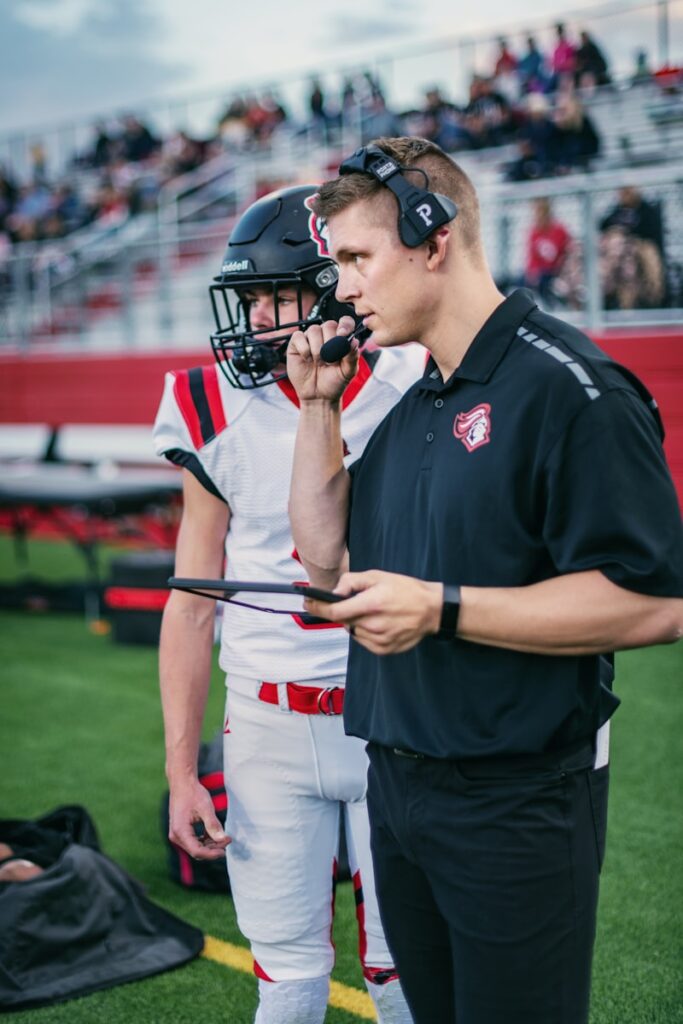
8. **Communicates Clearly**The cornerstone of effective client guidance is the ability to communicate with crystal clarity. A professional coach doesn’t just speak; they excel at “being able to communicate clearly and respectfully with people of varying personalities.” This habit is paramount because it ensures that every piece of advice, every instruction, and every expectation is delivered in a way that resonates and is understood by the individual receiving it. It prevents misinterpretations and lays a solid groundwork for mutual understanding.
Top coaches also recognize that communication is a dynamic, two-way process. They “expect the same in return” from their clients, fostering an environment where open and honest dialogue is the norm. This mutual commitment to clarity means that feedback loops are efficient, progress discussions are productive, and potential roadblocks are identified and addressed swiftly, rather than allowing confusion to fester and derail progress.
Mastering clear communication minimizes friction and maximizes forward momentum. Think of a client who feels overwhelmed by a complex goal; a coach’s ability to break it down into simple, understandable steps, articulated with precision and empathy, empowers that client to move forward with confidence. This practical clarity ensures that clients can internalize lessons and apply them effectively to their own unique situations, accelerating their journey towards tangible outcomes. It’s about making sure your message isn’t just heard, but deeply absorbed and acted upon.
Read more about: Worse vs. Worst: An In-Depth Business Insider Guide to Mastering These Tricky Adjectives
9. **Is Confident**A profound sense of self-assurance is a hallmark of truly professional coaches. This isn’t about overbearing arrogance, but rather an authentic, deep-seated belief in one’s own “skills and abilities.” When a coach radiates this quiet confidence, clients are naturally “more inclined to follow them,” drawn to the stability and expertise it conveys. It’s an internal conviction that translates into a steady presence and a clear direction for those they guide.
This habit acts as a crucial anchor for clients, especially when they are grappling with uncertainty or standing at a crossroads. A coach who is genuinely “self-assured” provides a comforting sense of reliability and competence. This reassurance signals to clients that their coach possesses the wisdom, experience, and resolve to expertly navigate them through challenges, inspiring them to trust the process and embrace transformative strategies with courage. It helps them believe in the journey they are embarking on.
Furthermore, the coach’s confidence serves as a powerful mirror, reflecting and cultivating confidence within the client. By demonstrating unwavering belief in their own capacity to guide, coaches implicitly yet powerfully convey their belief in the client’s inherent potential. This positive reinforcement loop means that as the coach’s confidence enables the client to trust the process, the client, in turn, develops their own self-assurance, becoming more empowered and motivated to tackle their aspirations head-on and achieve remarkable results.
Read more about: The Billion-Dollar Beat: Why Top Celebrities Are Revolutionizing Wealth Through Catalog Sales
10. **Lacks Ego**While confidence is undeniably a cornerstone, truly professional coaches adeptly balance it with a distinctive “lacks ego” approach. “Successful coaches are confident, but never arrogant,” a critical distinction that ensures the coaching relationship remains entirely client-centric. This habit signifies a willingness to step away from the need to be the hero, an authentic disinterest in merely “giving advice or providing solutions.” Their focus is always on the client’s journey of discovery.
Instead, an ego-less coach derives profound satisfaction and excitement from “helping others arrive at their own conclusions and solve their own problems.” This empowering philosophy transforms the coaching dynamic from a directive, top-down instruction to a collaborative, facilitative partnership. By actively resisting the temptation to offer immediate answers, these coaches create the space and provide the tools for clients to tap into their innate wisdom and develop solutions that are deeply personal and sustainable.
This habit is fundamental for building lasting client autonomy and magnifying the long-term impact of coaching. When clients arrive at solutions through their own guided introspection, they cultivate a powerful sense of ownership, competence, and self-efficacy. This approach respects the client’s inherent intelligence and capacity, effectively transitioning them from a potential dependency on the coach to becoming their own most resourceful and effective problem-solver. It is a subtle yet profoundly impactful habit that fosters genuine, self-driven growth.
Read more about: Trouble on the Update: 13 Smartwatches Users Wish They Never Synced to Their Phone.
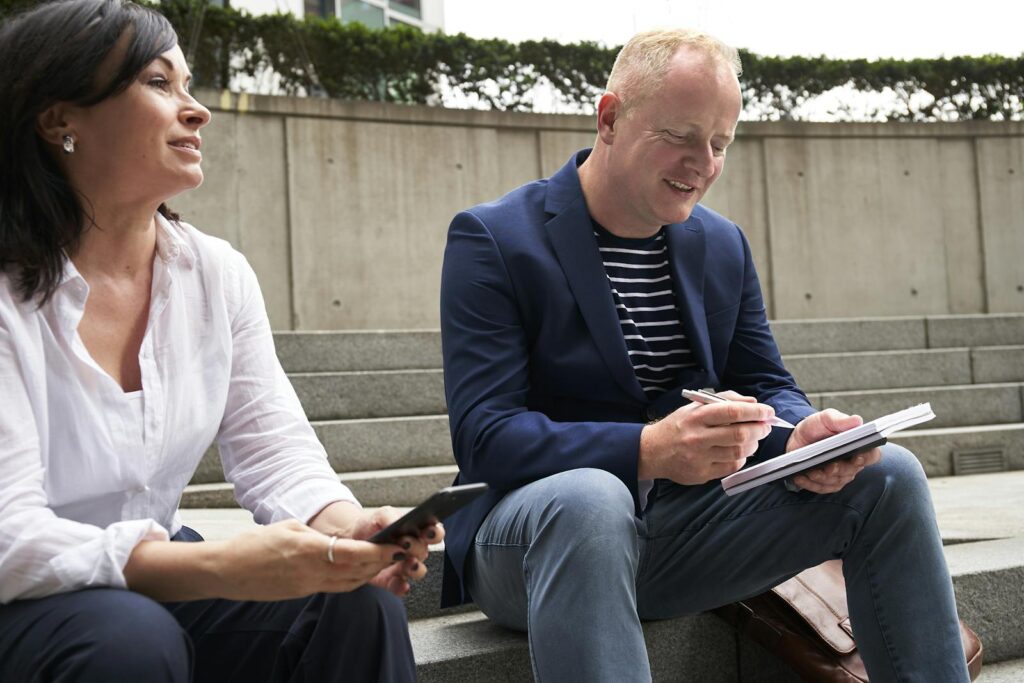
11. **Is Unafraid**Professional coaches possess a remarkable quality: the habit of being “unafraid” to confront difficult truths or gently challenge comfortable, yet limiting, assumptions. As the saying goes, “There’s always that one person in a group who asks the tough questions and is the first to call someone out when they need it.” This fearlessness is not rooted in confrontation for its own sake, but in an unwavering commitment to authentic client progress, even when it means venturing into emotionally charged or uncomfortable territory.
This habit enables coaches to address deeply embedded issues that might otherwise covertly obstruct a client’s growth and potential. Whether it involves sensitively challenging deeply held limiting beliefs, gently highlighting areas of unconscious avoidance, or skillfully nudging a client beyond their perceived comfort zone, the unafraid coach operates with unwavering integrity and courage. They instinctively understand that true, lasting transformation frequently lies just beyond the realm of polite or superficial conversation, demanding a genuine willingness to delve into the very core of a challenge.
By embodying this courageous habit, professional coaches cultivate an environment of profound psychological safety and honest introspection. Clients learn to perceive their coach as an unshakeable partner, someone who is not only willing but able to confront difficult realities alongside them. This forges a unique and robust bond of trust, where clients feel secure enough to vulnerably explore their deepest fears and insecurities, knowing their coach will steadfastly support them through the most challenging and transformative aspects of their personal and professional journey. It’s about enabling powerful breakthroughs through boldly supportive partnership.
Read more about: Rewind to the ’70s: 15 Iconic Actresses Who Mastered Allure and Cinematic Brilliance
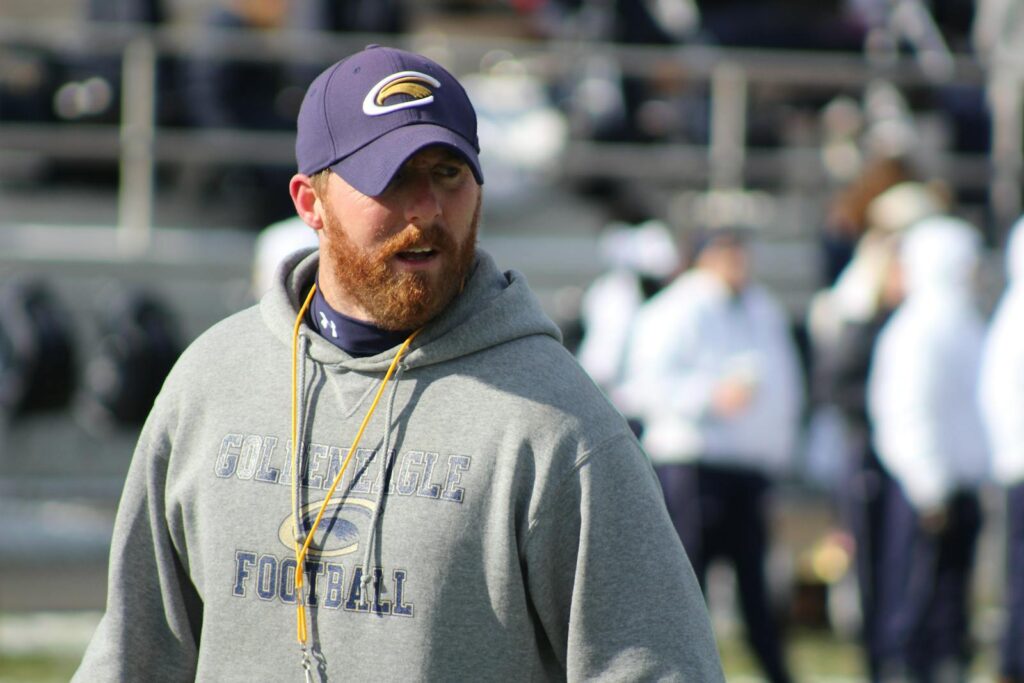
12. **Inspires Action**The true metric of exceptional coaching is its tangible ability to convert insightful reflection into concrete, measurable progress. Professional coaches consistently “inspires action,” skillfully guiding clients beyond mere contemplation to active execution. This isn’t achieved through dictatorial mandates, but by expertly igniting an intrinsic, self-driven motivation within the client. The core of this habit lies in transformative conversations: “Can you motivate and others simply by having a conversation with them? Do people feel empowered to tackle their problems after spending time with you?” These profound questions encapsulate the essence of this potent habit.
An action-inspiring coach masterfully crafts dialogues that are not just intellectually stimulating but are powerfully catalytic. They adeptly assist clients in crystallizing their vision, pinpointing the precise next steps, and meticulously building the necessary self-belief and confidence required to take those crucial initial strides. This often involves the practical strategy of deconstructing ambitious, overarching goals into smaller, more manageable, and achievable actions, celebrating every small victory along the way, and diligently cultivating a deep-seated belief in the client’s innate capacity to surmount any obstacle. The desired outcome is a client who concludes each session feeling not only deeply understood but also genuinely energized, decisively ready, and fully equipped to propel themselves forward towards their ambitions.
This habit is deeply rooted in an advanced understanding of human psychology and motivation. By expertly connecting clients with their most profound intrinsic desires and skillfully guiding them to vividly visualize their future successes, professional coaches empower them to overcome procrastination, conquer inertia, and purposefully initiate meaningful change. It is fundamentally about transforming nascent potential into lived reality, expertly guiding clients to “feel empowered to tackle their problems” and actively work towards realizing their most significant aspirations, thereby translating abstract ambitions into concrete, impactful achievements.
Read more about: Beyond the Script: 14 Amazing Actors Who Are Also Chart-Topping Singers and Master Musicians
13. **Remains Positive**In the often-arduous and challenging journey of personal and professional development, a coach’s consistent ability to “remains positive” stands out as an invaluable, indeed indispensable, asset. This habit presents a striking counterpoint to destructive behaviors such as “negative self-talk, constant complaining, belittling, and berating.” Instead, “effective coaches are people who always look on the bright side and offer up encouraging words,” embodying a resilient optimism that profoundly influences their clients. This isn’t a naive or Pollyanna-ish cheerfulness, but a deliberate and strategic choice to actively cultivate resilience, foster hope, and sustain unwavering motivation in the face of adversity.
This unwavering and consistent positivity acts as a potent antidote to client doubt, discouragement, and potential self-sabotage. When clients inevitably encounter setbacks, a coach who steadfastly maintains an optimistic outlook skillfully assists them in reframing these challenges not as insurmountable obstacles, but as invaluable opportunities for significant learning and profound growth. This consistently supportive and uplifting demeanor meticulously crafts a psychologically safe and energizing space, allowing clients to meticulously process difficulties without spiraling into debilitating negativity. Critically, it encourages them to proactively seek viable solutions and new pathways forward with a renewed sense of hope and determined purpose.
By consciously and consistently habituating positivity, professional coaches accomplish more than simply uplifting their clients; they powerfully model a crucial, resilient mindset that is absolutely essential for sustained success. They effectively teach clients the profound importance of developing personal resilience, practicing genuine self-compassion, and diligently maintaining a forward-looking, optimistic perspective, even when the immediate path ahead appears fraught with difficulty. This empowering and contagious outlook equips clients with an essential, enduring tool for masterfully navigating their own challenges long after the formal coaching relationship concludes, ensuring they emerge from the process not only with a brighter perspective but also with the practical mental tools to steadfastly maintain it independently.
Read more about: Unpacking the ‘Why’: Decoding Your Skyrocketing Homeowner’s Insurance Bill and Strategies to Bring it Back to Earth
These habits—encompassing everything from fostering clear communication and exuding confident presence, to embracing an ego-less approach, facing challenges unafraid, inspiring concrete action, and maintaining an unwavering positive outlook—are far more than mere techniques or fleeting strategies. They are deeply ingrained ways of being and operating that fundamentally elevate coaches from merely competent to truly exceptional. By diligently cultivating and consistently embodying these impactful outward-facing and strategic habits, you will not only profoundly refine your professional coaching practice but also empower your clients to decisively achieve their highest and most ambitious potential. This deliberate cultivation makes a profound, indelible, and lasting impact on their lives, unequivocally separating you as a genuine professional and a transformative force in the dynamic and rewarding arena of coaching.






